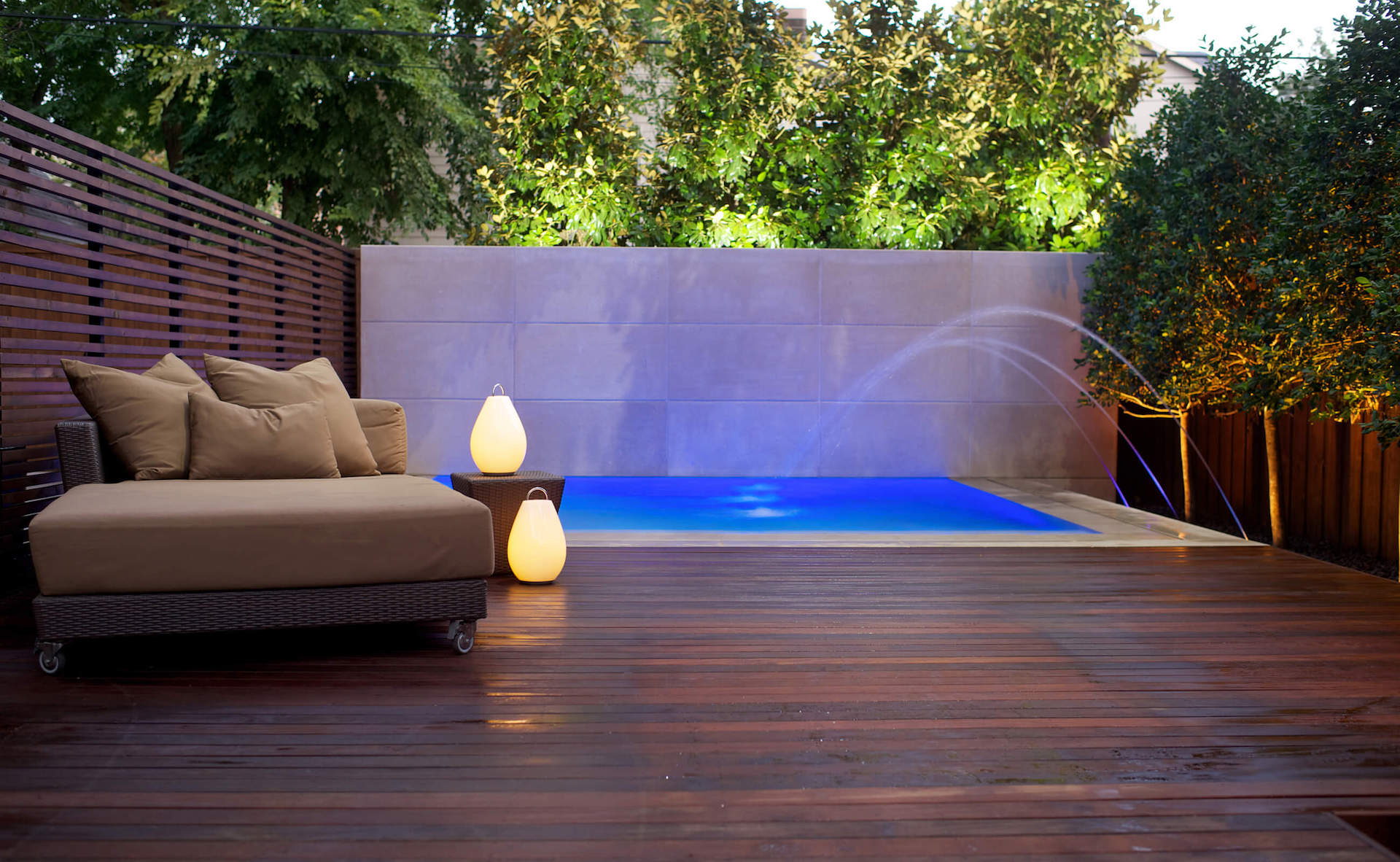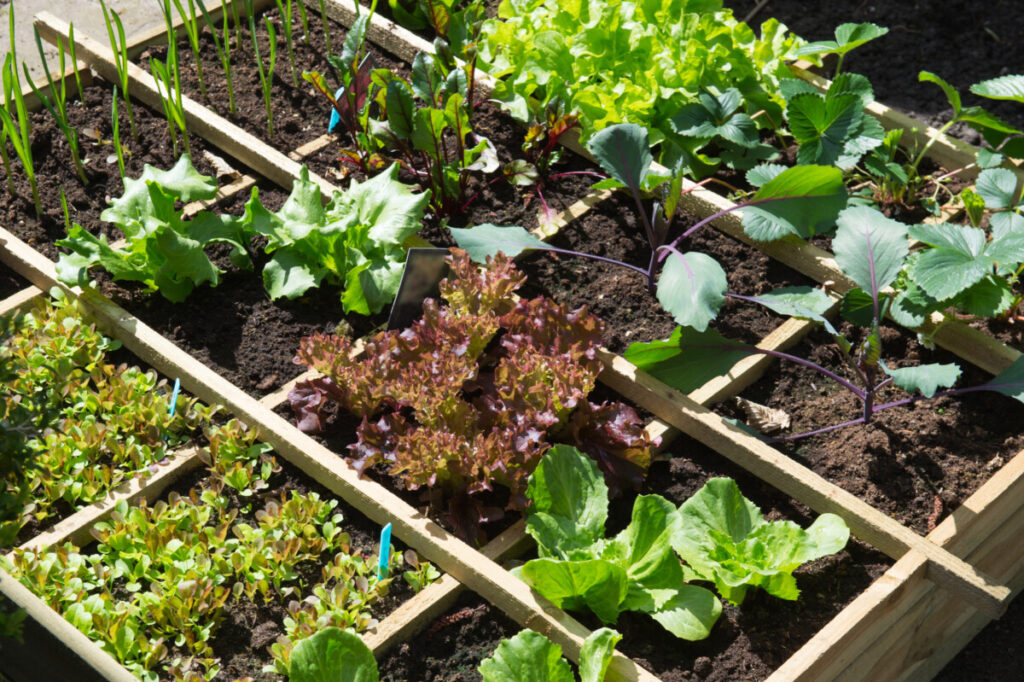
5 Simple Shifts Toward Sustainable Living
How you can make daily adjustments to live more sustainably
Eco-Safe. Environmentally-Conscious. Ozone-Friendly. Green. Organic. All-Natural, Biodegradable. Sustainable. We see brands boasting about these buzzwords in their advertising and the internet search trends are enough to send one down a neverending rabbit hole. But what exactly is sustainability and why is it so important? In light of Earth Day, let’s explore why and how we celebrate, what it truly means to live a greener lifestyle, and some practical tips we can practice for more sustainable living.

History of Earth Day
Since its inception, Earth Day has educated us on environmental issues and how we can do our part to protect our planet. In 1970, U.S. Senator Gaylord Nelson deemed April 22 a day of awareness and action, and the movement has grown into a global effort for individuals, communities, and governments alike, often celebrated through:
- Environmental education
- Promoting sustainable practices
- Protests and rallies
Learn more at Earthday.org
Fully recyclable and durable Cor-Ten Steel relies upon less energy consumption during production and weathers the years beautifully, making it a suitable sustainable choice to enhance your landscape.
What is sustainability?
What exactly determines a material’s sustainability factor? There’s more to being green than meets the eager, earth-loving eye. What is its history? Was it sourced responsibly? How was it manufactured? What is its overall carbon footprint during its lifespan? Sure, being environmentally conscious is a lot to consider, but preserving the earth for future generations is essential. In short, every action required, every living organism affected, and every natural resource utilized play into account to determine a building material’s sustainability.
Luckily taking steps toward sustainable living is easier than you may think. It begins by implementing some simple changes and exercising them consistently until they become a habit. Consider these practical applications:

Basic Principles for Sustainable Living
1. Reduce
Consume Less Waste
Minimizing the amount of waste from everyday items can easily reduce our carbon footprint.
- Purchase products with minimal to no packaging
- Avoid single-use items
- Consume less overall waste
Gorgeous Gloster lanterns rely upon renewable solar energy to create a sustainable light source.
Conserve Resources/Energy
- Utilize renewable energy sources
- Switch to LED light bulbs
- Use smart thermostats
- Assess Energy Star ratings when purchasing new appliances
- Unplug appliances when not in use
- Turn off unnecessary lights
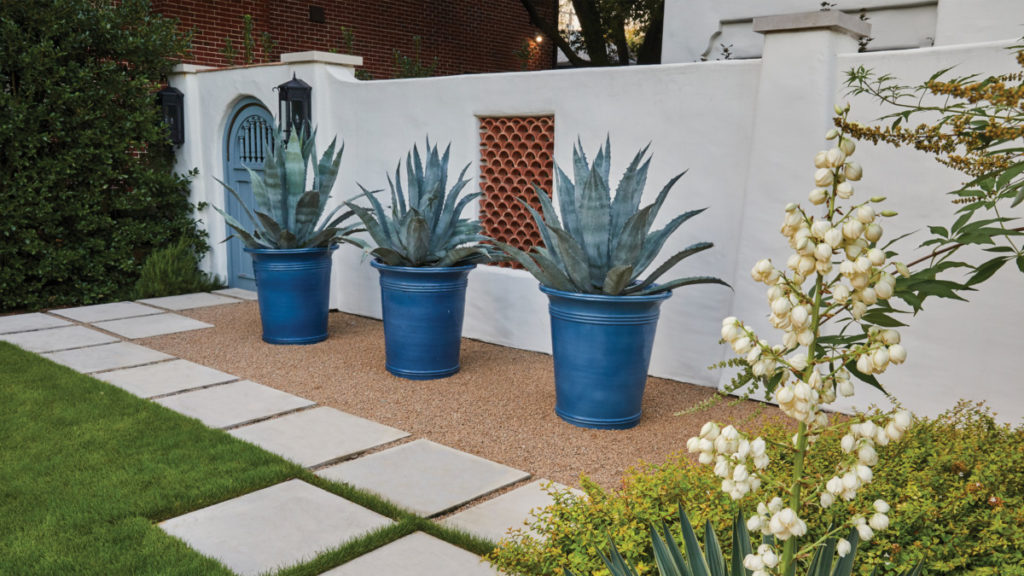
Practice Water Conservation
At Bonick, our garden managers and irrigation specialists can assist with responsible water management to help your landscape thrive, while conserving precious natural resources. From native, drought-tolerant gardens and inspecting your pool and irrigation systems for leaks to monitoring smart sprinkler controllers and managing runoff, our skilled technicians will ensure a sustainable landscape.
- Fix all leaks
- Follow your city’s water restrictions
- Install smart sprinkler controllers
- Enlist in professional water management
- Enlist in regular pool maintenance
- Consider a drought-tolerant landscape
- Install a rain barrel
- Take shorter showers
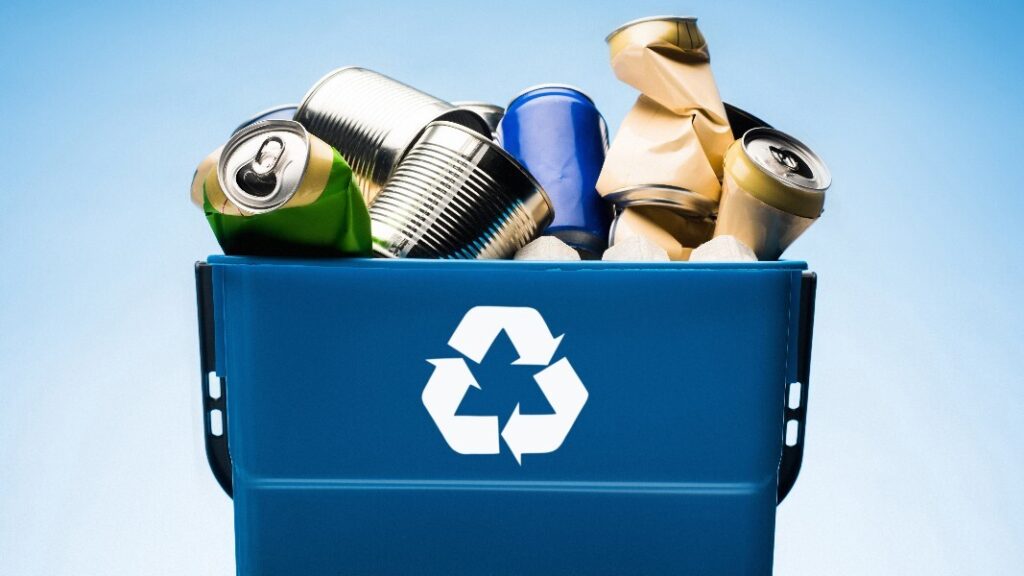
2. Recycle
While recycling paper, plastic, glass, and metal is crucial, it’s about much more than what we take to the curb. Still, it’s important to familiarize yourself with your city’s requirements and implement this simple adjustment to your routine if you aren’t already participating.
Other ways to recycle:
Composting
Transform organic matter into valuable natural resources. Combining naturally occurring items in the correct proportions can enrich our soil and reduce waste.
Nitrogen (green) – moist organic matter like grass, fruit and vegetable scraps, coffee grounds
Carbon (brown) – dry, natural materials like leaves, twigs, cardboard, wood chips, and paper
Water – It’s crucial to maintain moisture in your compost pile for microorganisms to thrive.
Oxygen – Turning the compost periodically cuts down on odor and aerates it by providing needed oxygen.
Get the complete composting guide from Texas Agrilife.
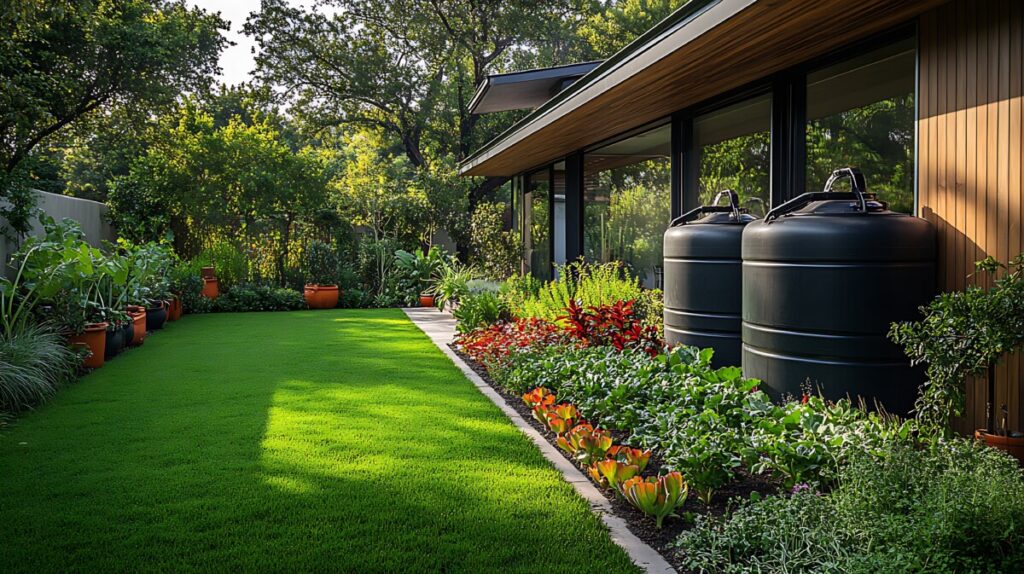
Rainwater Harvesting
Rainwater harvesting assists in sustainable living through:
- Water conservation
- Reduced greenhouse gas emissions
- Efficient resource management
As we all know, summer droughts in Texas can be problematic. One proactive approach to recycling our natural water source is to invest in rain barrels to harvest water in the rainy season for later use. Granted, there’s no guarantee how much water can be saved, and it will most likely be reused by the end of summer, but every little bit helps. However, it is important to note that while rain barrels may hold enough water to save for mid-summer container plant watering, it takes a tremendous amount of storage for just one full watering cycle of your entire landscape. Luckily, your dedicated garden manager can assist by properly cycle soaking and managing run off to help eliminate water waste!

2. Reuse
Many of us have already implemented some of these ideas in our daily lives. Simple swaps like carrying reusable coffee thermoses, water bottles, and shopping bags can make a big difference when multiplied en masse.
Investing in high-quality vintage furnishings and fashion can create an iconic, timeless feel that, with proper care, can withstand the test of time and reduce carbon emissions due to production.

It’s important to note that even with the best-laid plans, it’s often challenging to be 100% green. Even when following the above tips, there are pros, cons, and conundrums to most everything. Here are a few examples:
- When purchasing reusable items, it takes some research to find companies employing sustainable practices or manufacturing locally.
- While EVs can significantly reduce emissions, the electricity used for charging can still rely partially upon fossil fuels.
- Renewable energy can have unpredictable output and infrastructure.
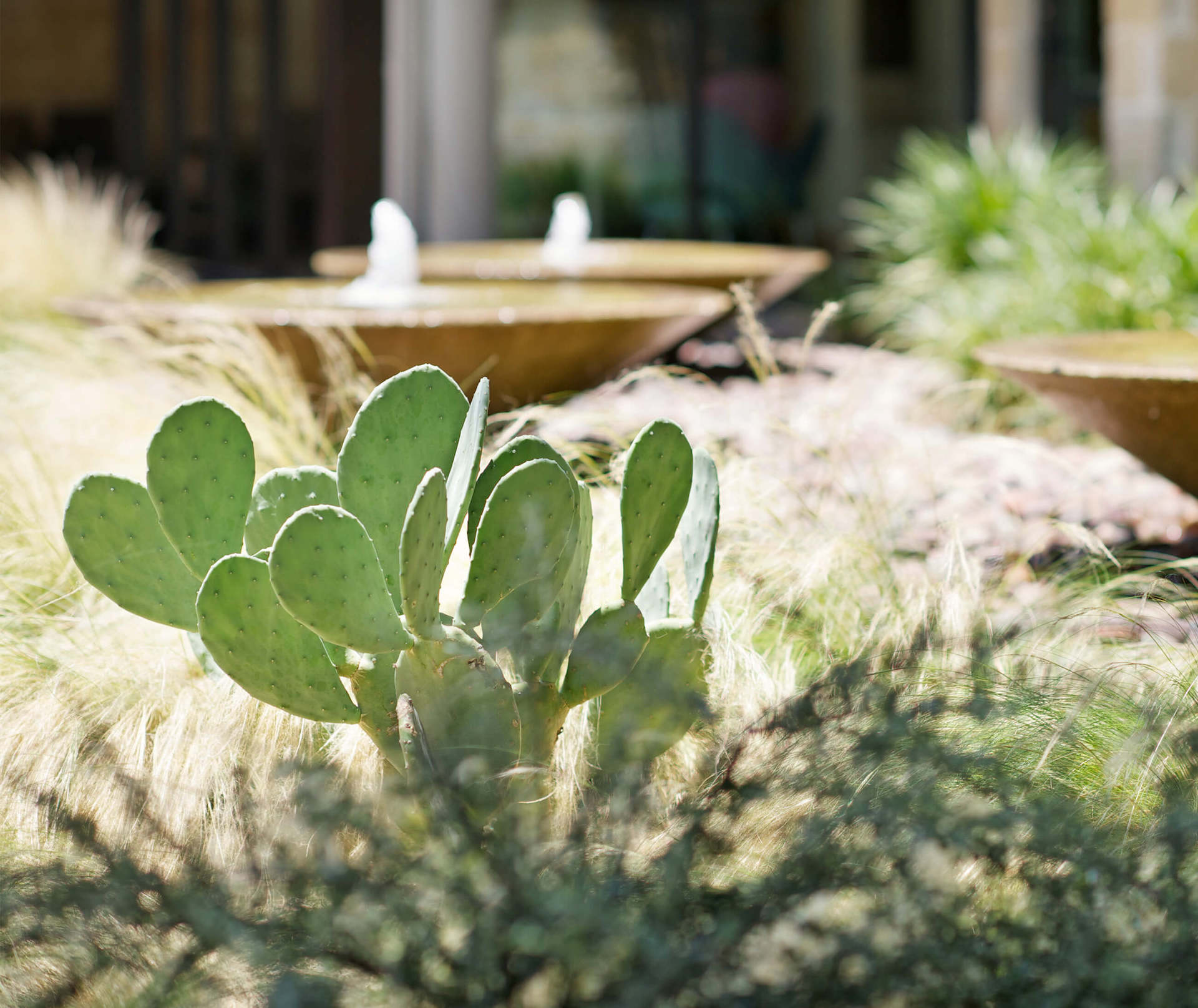
Sustainable Landscaping
When it comes to the management of your landscape, employing a professional landscape service can be a valuable asset to sustainable living. As trailblazers in the green landscaping industry, Bonick Landscaping was one of the first Dallas landscape companies to go organic way back in 1987. Through the use of organic treatment, native plants, and conservation methods, and the implementation of sustainable practices and materials, we aim to help conserve our natural resources to preserve the longevity of our environment. Contact us to ease your workload and your conscience.
You May Also Enjoy:
The Evolution of Four Decades in Dallas Landscapes

